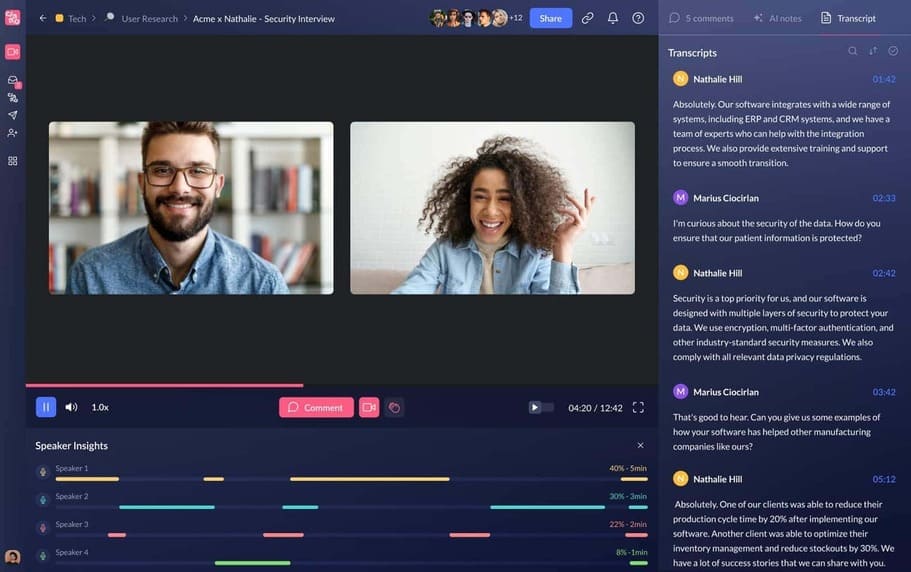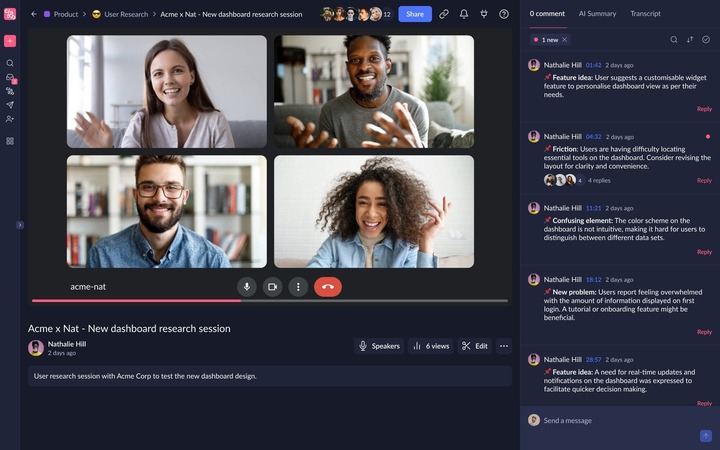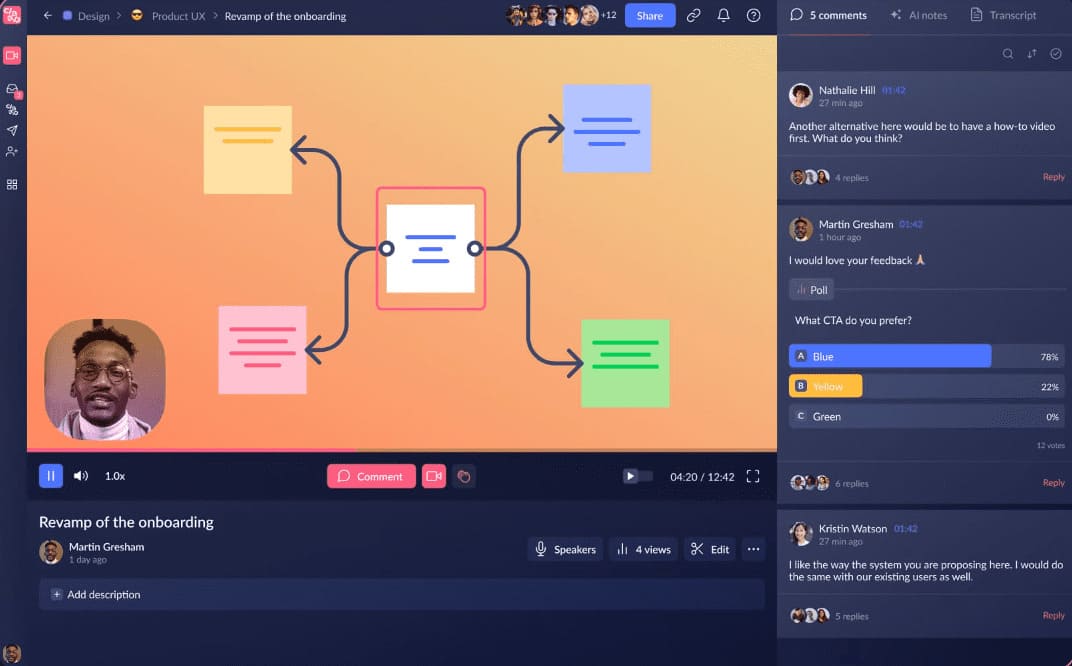
Decoding Success: The Ultimate Interview Scorecard Template
What is an interview scorecard template?
An interview scorecard (also known as interview scoring sheet) is a structured evaluation tool used in the assessment of job candidates during the interview process.
An interview scorecard template should help you easily evaluate a candidate’s performance during an interview. At least a good interview scorecard template should. Don’t worry! I will give you one later in this article. First let me explain why you should use an interview scorecard.
Why use an interview scorecard?

Understand the requirements of the position
As an interviewer, you may not prepare your own scorecards. And then your interview scorecard will come in handy. You just need to have a look at it before the interview to understand the requirements of the job and you may see, for instance, an important part dedicated to a specific software.
Your interview scorecard allows you to be more involved in your interview and to accurately evaluate the candidate.
Evaluate and compare the candidates
It’s the reason why you want to use an interview scoring sheet. A decent interview scoring sheet should include a scoring system to evaluate the candidates.
This scoring system should be standardized to compare candidates using their score only.
Standardize interviews
An interview scorecard template should guarantee equal conditions for candidates. For that, the same areas should be used to evaluate all the candidates. I would even recommend having the exact same interview scorecard (with the same questions) for all the interviews concerning a job position.
Using an interview scorecard also allows you to maximize the objectivity in the evaluation as you use standardized scoring systems. Each interviewer uses the same scoring scales and is supposed to score candidates the same way.

Keep track of the interview
If you have experienced interviewing candidates without an interview scorecard, you might know how painful it can be afterwards. You know, when you have to remember the candidate based on the unreadable doodles on your paper.
With an interview scorecard, you don’t even need to remember your candidate. You evaluate the performance during the interview when you score him/her. Then you just need to send the scorecard to the HR team (or use it yourself) and your job is done!
If you want to keep the details of your interview, I recommend you to use Claap. It will automatically take notes of your interviews and record them. Having your cake and eating it too.

What should you include in your interview scorecard?
Background information
This is the basic information you need to have in your interview scorecard. You might not want to include the details but you should at least know which interview it refers to. Your interview scorecard should include:
- The date and time of the interview
- The candidate and interviewers’ names
- The exact name of the job position you are interviewing for
Areas to evaluate
This is the most important part of your interview scorecard. The areas to evaluate with your candidate. In a classic job interview, these areas may be:
- Education
- Professional Experience
- Skills and qualifications
- Personality
- Cultural Fit
There are two main formats you can choose for your interview scorecard:
- General form: If you use this kind of interview scorecard you will have relatively vague areas to evaluate such as “Cultural Fit”
- Question form: If you use this kind of interview scorecard you will have specific questions to ask to the candidate

A scoring system
The scoring system is also essential for your interview scorecard. Generally, you will have a scale from 1 to 5. Each score should be associated with a specific description of the candidate’s performance, to have the most standardized scores.
Here is an example of the description you can give to your scores:
- 1/5: The response does not address the question and lacks essential information.
- 2/5: A subpar answer with some relevant points, but it lacks completeness.
- 3/5: An acceptable response that covers the main points but lacks depth or additional insights.
- 4/5: A strong and well-rounded answer that exceeds the basic requirements of the question.
- 5/5: An outstanding response that precisely meets all expectations and provides exceptional insights.
Score (and answer) section
In an interview scorecard, you MUST have a score section. For the answer section it will depend on your company’s expectations. Sometimes you may have to include elements of the candidate’s answer, sometimes not.
If you want to create your own interview scorecard, I would advise you to include an answer section. The evaluation will be more accurate and you will be able to adjust the score afterwards if needed.
You want to keep track of your candidate’s answers without including an answer section? Then you’ll need Claap to record your interviews.

A notes section
Again, this is not mandatory. It will depend on what you or your company expect from the interview scorecard. But it may be useful to have an additional blank section for every field you want to evaluate. So you can add any feedback or miscellaneous information you might find relevant to keep for the evaluation.
An useable interview scorecard template
Now that you know exactly why you need an interview scorecard for your interviews, let’s go to the key point with an actual interview scorecard template. Below is a general interview scorecard template:
If you want a more detailed version, with questions, you can opt for the following template:
Example of use of the interview scorecard template
The templates I provided will be very useful if you know how to use them. To help you with that, here are examples of use of the two templates. You just have to fill your template the same way to become the king of interviews!
Here is an example of use of the general version provided before:

And here is an example of use of the complete version:

How to create your interview scorecard template?
The templates I provided include everything you need to properly evaluate a candidate. But you will need to adapt them. And I’m here to help you with that.

Understand the requirements of the position
Remember when I told you an interview scorecard could help you understand the requirements of the position you’re interviewing for? Well, if YOU are the one creating the interview scorecard template, it obviously doesn’t apply.
You will have to think exactly of what it takes to have this position. For instance, the job may require proficiency in Python.
Adapt the template accordingly
Now you have to adapt the template.
If you want to use the general template (evaluating general areas), you just need to replace the areas section (in your template) with the ones you want to evaluate from the candidate.
If you want to use the complete template (with questions), you will need to find relevant questions for each field you want to evaluate. But don’t worry, I got your back. Here is a list of potential questions you may use for the main areas to evaluate:
Education
- Can you provide an overview of your academic background, including any relevant certifications?
- How do you believe your educational background has prepared you for this position?
- Are there specific courses from your academic history that you believe are particularly relevant to this job?
- Were there any honors, awards, or recognitions you received during your academic journey?
- Have you pursued any additional education, certifications, or professional development since completing your formal education?
- What was your overall GPA, and how do you believe it reflects your academic performance?
- If applicable, could you provide a brief overview of any research projects or theses you undertook during your academic career?
- Were you involved in any extracurricular activities or clubs during your time in school?
Professional Experience
- Walk me through your resume and highlight the key experiences that make you a strong fit for this position.
- Can you share a specific accomplishment from your previous role that you believe directly relates to the challenges of this position?
- Describe the most significant project you've worked on in your career. What was your role, and what impact did it have?
- How do you see your past experiences contributing to the success of our team/company?
- What led you to pursue a career in [industry/field]? How has your background prepared you for this role?
- In your previous role, how did you collaborate with your team to achieve common goals?
Skills and Qualifications
- What specific skills do you think make you a strong fit for this role?
- How would you rate your proficiency in [specific skill required for the job]? Can you provide examples of how you've applied this skill in your previous roles?
- Tell us about a time when you successfully used [a relevant skill] to solve a challenging problem at work.
- What steps do you take to keep your [specific skill] sharp and up-to-date with industry best practices?
- Can you provide examples of how you've used [another specific skill] to streamline processes or improve efficiency in your previous positions?
- How do you approach learning new technologies or tools that are relevant to your role? Can you share a recent example?
- What experience do you have with [specific software or technology mentioned in the job description]? How comfortable are you with learning new tools?
- How do you prioritize tasks when multiple deadlines are approaching, and how has your [specific skill] helped in managing your workload effectively?
- What certifications or training do you possess that directly relate to the requirements of this position?
Behavioral Questions
- Tell me about a time when you had to deal with a difficult team member. How did you handle the situation, and what was the outcome?
- Describe a situation where you had to make a tough decision. What factors did you consider, and what was the result?
- How do you handle stress and pressure in the workplace, and can you share a specific example of when you faced a high-pressure situation?
- Tell me about a time when you had to take the lead on a project. How did you motivate your team, and what was the outcome?
- Share an example of when you had to give constructive feedback to a colleague. How did you approach it, and what was the response?
- Describe a situation where you had to resolve a conflict within your team. What steps did you take, and what was the resolution?
- Tell me about a project that didn't go as planned. What challenges did you face, and what did you learn from the experience?
- How do you ensure effective communication within a team, especially when working with diverse individuals? Can you provide an example?
- Describe a time when you had to quickly adapt to a change in project requirements. How did you handle it, and what was the outcome?
- Share an example of when you had to influence others to adopt a new idea or approach. How did you approach it, and what was the result?
Cultural Fit
- What do you know about our company culture, and how do you think you would fit into it?
- Describe the work environment where you feel you thrive the most. How does it align with our company culture?
- How do you prioritize work-life balance, and how does this align with our company's values?
- In your opinion, what makes a workplace inclusive, and how have you contributed to creating an inclusive environment in your previous roles?
- Can you share an example of when you demonstrated flexibility and adaptability in a work setting?
- What role do you believe company values play in the day-to-day work of an employee, and how have you demonstrated alignment with values in your career?
- How do you approach giving and receiving feedback, and how does this align with our company's feedback culture?
- What aspects of our company's mission and vision resonate with you, and how do you see yourself contributing to our long-term goals?
- How do you approach building relationships with colleagues and fostering a positive work environment?
Add specific requirements

Here we are, the final step before you complete the creation of your own interview scorecard template. Here you just need to take into account any specific requirement you might have. You may have to include a feedback section where you describe with words what you thought about the performance of the candidate. You may also need to adapt the format of your template for instance.
Triple your productivity in your interviews process with Claap
Now that you've incorporated interview scorecards, you've enhanced your interviewing approach. But, with Claap, you can take it a step further.
Claap is an audio and video transcription tool. But it’s way more than that and it will be a game changer for your interviews. Here is why:
Claap records your interview
Sometimes you score the candidate and, at the end of the interview, while you are reviewing the scores you think “Oh I might have been too strict here!” or “Did he deserve such a high score?”. But you can’t just modify the grade afterwards, it would not be fair for other candidates!
With a meeting recording tool such as Claap you don’t have this kind of issues: whenever you are unsure about something related to the interview, you can just re-watch the interview. Yes, Claap entirely records your meetings. You will never miss important information again.

Claap transcribes your interview
I just said that you could re-watch an interview if you needed to clarify something. Well you might not even need to. Claap is an automatic notetaker. It will transcribe the entire meeting for you. So you don’t always need to watch the recording for clarification.
Maybe you were thinking about taking notes alongside your interview scorecard? You can also forget that with Claap.
Claap summarizes your interview
You may have specific guidelines for your interviews. For instance, taking notes in an interview template alongside the interview scorecard. Here again, Claap is your lifesaver! Its notetaking ability is combined with AI features that automatically summarize your notes and adapt them to your template. You have enough work with the scoring right? Yes, Claap thinks the same.

Claap manages your recordings
You thought Claap was only storing your recorded interviews? It does way more than that. Claap is like your personal librarian. With its intuitive video wiki, you have access to powerful search features to find your past interviews in a snap of the fingers!

Claap rethinks your interview process
Claap offers a large panel of collaborative features that could lead you to completely rethink your interview process. For instance, you could share the recorded interview in a specific workspace where several other interviewers would give their own feedback and grade for the candidate. They could even highlight specific parts of the video to support their statements.

But it’s only an example I came up with. There are many other features offered by Claap that will help boost your processes and overall productivity. To discover them, don't wait any longer, try Claap now (free plan available with no credit card needed)!


